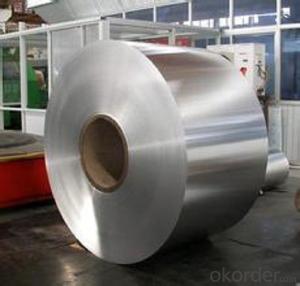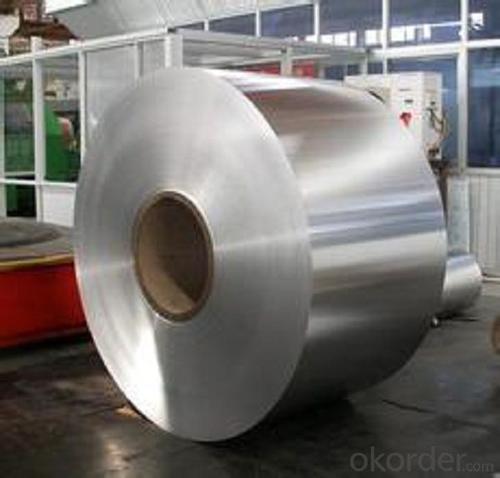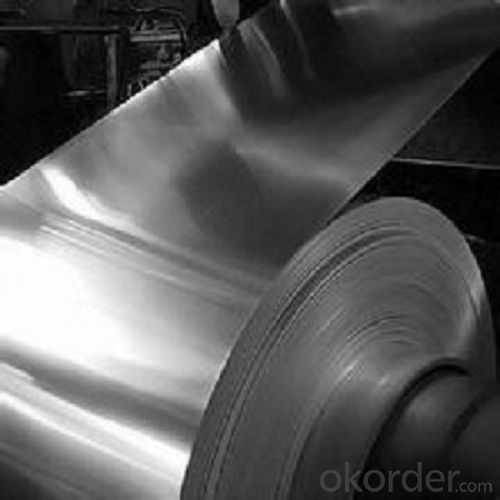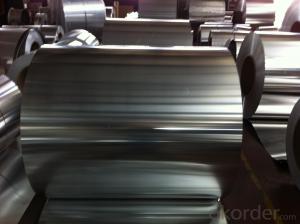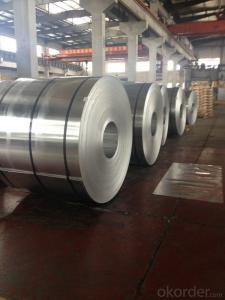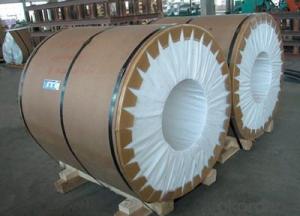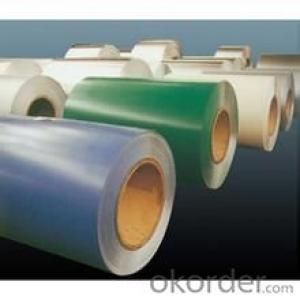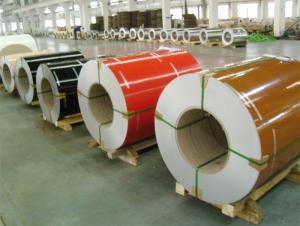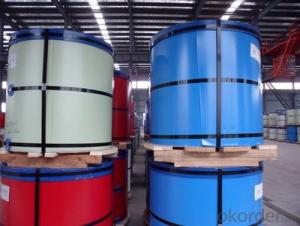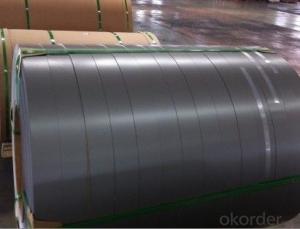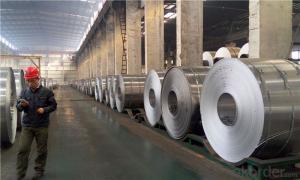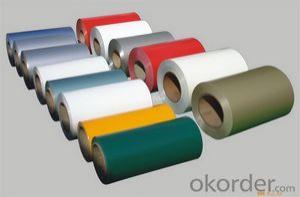Acl Aluminum Coils Todd Rahman 3003 Alloy Anti-Corrosion Insulation Aluminum Coil
- Loading Port:
- Shanghai
- Payment Terms:
- TT OR LC
- Min Order Qty:
- 2.5
- Supply Capability:
- 5000 m.t./month
OKorder Service Pledge
OKorder Financial Service
You Might Also Like
Specification
3003 Alloy Anti-corrosion Insulation Aluminum Coil
lProduct Information
| Aluminum coil | Thickness mm | Width mm | Temper |
| 1050 1060 1070 1100 1200 1235 | 0.2-4.0 | 20-1500 | O H12 H14 H16 H18 H22 H24 H26 |
| 4.0-12.0 | 1500-2200 | H111 H112 | |
| 3003 3004 3A21 3105 | 0.2-4.0 | 20-1500 | O H12 H14 H16 H18 H22 H24 H26 |
| 4.0-12.0 | 1500-2200 | H111 H112 | |
| 5052 5754 5083 5A05 | 0.2-4.0 | 20-1500 | O H12 H14 H16 H18 H22 H24 H26 |
| 4.0-12.0 | 1500-2200 | H111 H112 | |
| 6061 6063 6082 | 0.15-200 | 900-2200 | O-H112 T |
| 8011 8021 8079 | 0.2-4.0 | 20-1500 | O H12 H14 H16 H18 H22 H24 H26 |
| 4.0-12.0 | 1500-2200 | H111 H112 |
lPackaging & Delivery Details
Packaging: Standard seaworthy packing
Delivery: About 25 days after received your advance
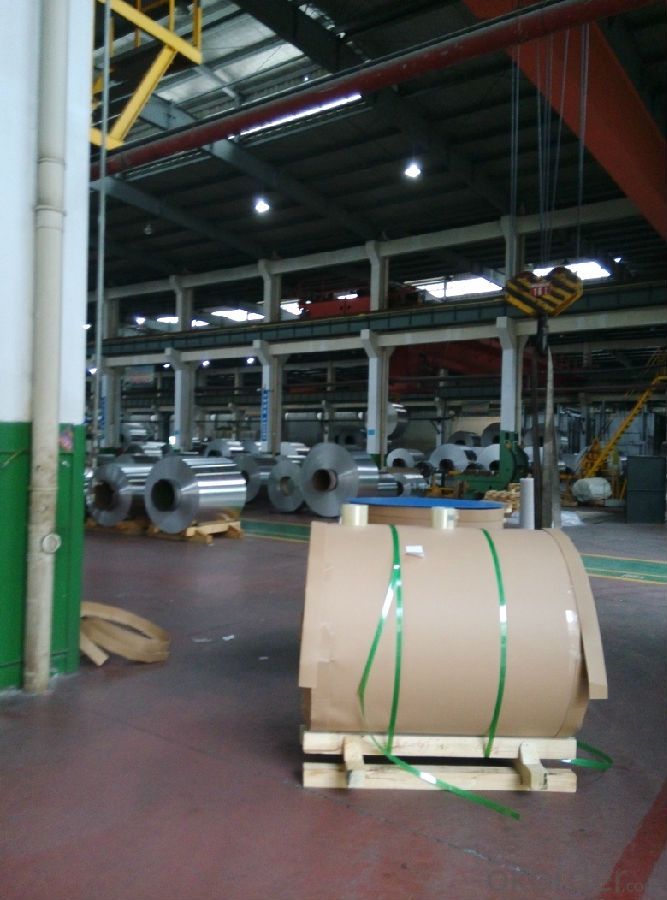
lCompany Profile
CNBM International Corporation, China National Building Materials (Group) Corporation, is one of the largest companies in China building
material & equipment industry, with 42,800 employees and sales in 2005 of US Dollar 4.395 billion. In 2006, China National Building Material Company Limited was listed on Hong Kong Stock Market with the stock code as 3323.
CNBM has been involved in aluminium products for about a decade. With advanced technology and equipment, our products have been sold to the worldwide including America, Europe, as well as South Asia, etc.
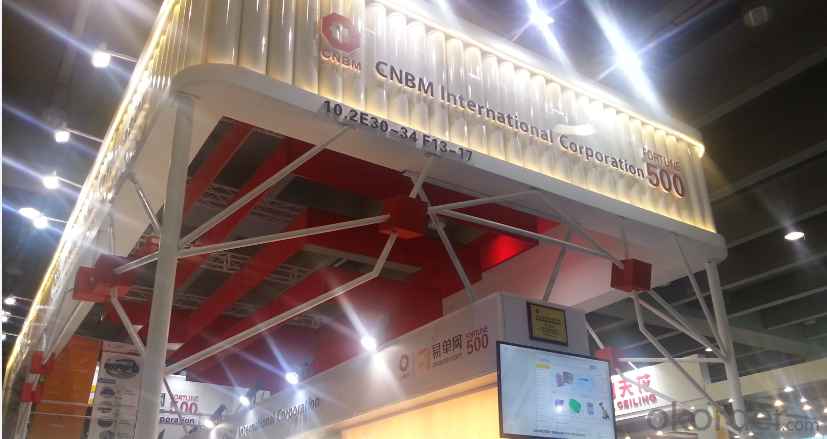
lProduct Images
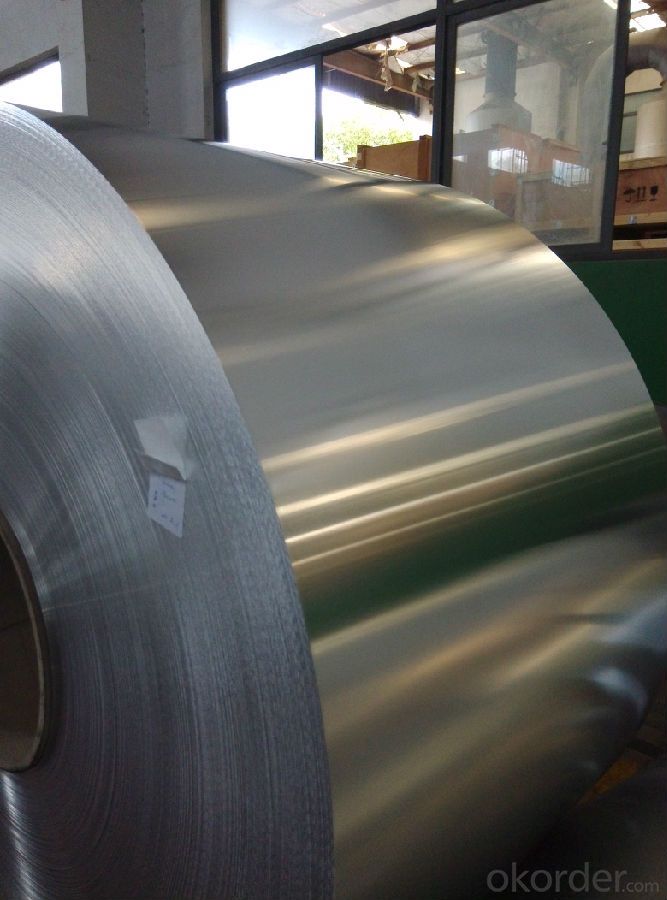
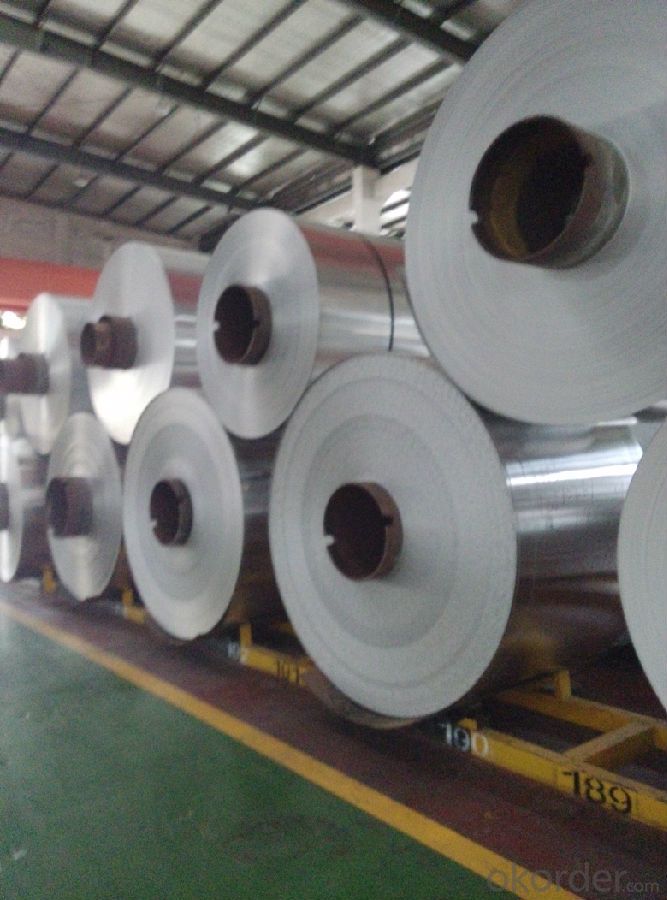
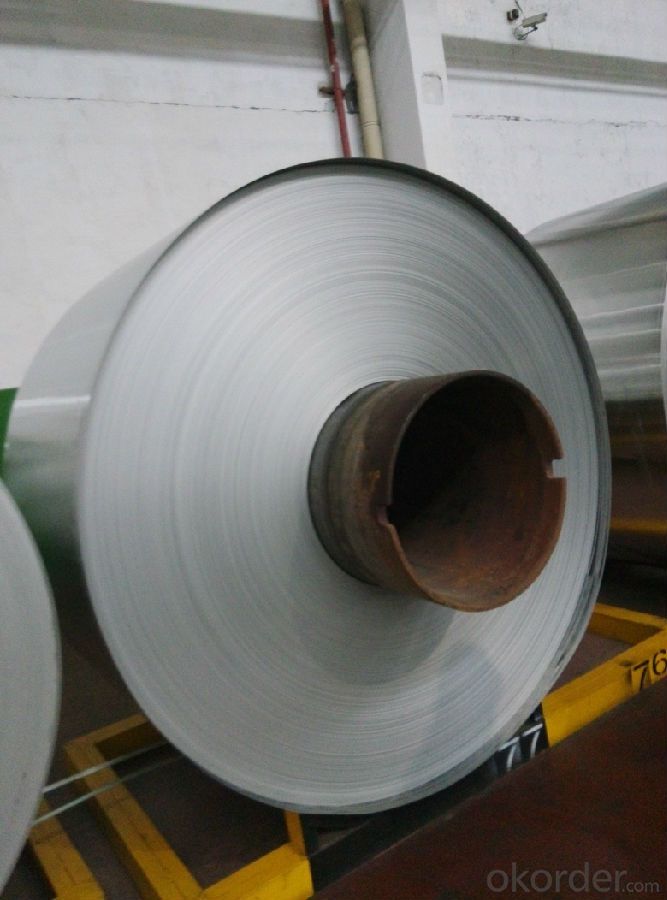
lCertificates
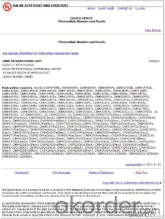
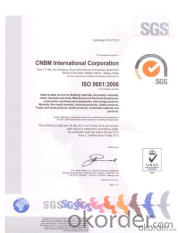
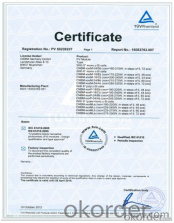
lFAQ
Q: Do you provide free samples?
A: Yes, free samples will be sent to you on freight at destination.
Q: Can I get your latest products catalogue?
A: Yes, it will be sent to you in no time.
Q: What is the MOQ?
A: 2.5 tons
- Q: Are there any specific guidelines for handling and storing aluminum coils in warehouses?
- Yes, there are specific guidelines for handling and storing aluminum coils in warehouses. Some key guidelines include ensuring proper ventilation to prevent condensation and humidity, storing coils on pallets or racks to prevent damage, using appropriate lifting equipment to handle coils safely, avoiding stacking heavy items on top of coils, and regularly inspecting for any signs of damage or corrosion. Additionally, it is important to follow any manufacturer-specific guidelines for handling and storing aluminum coils.
- Q: How do aluminum coils contribute to indoor air quality?
- Various ways are affected by the crucial role played by aluminum coils in maintaining and improving indoor air quality. Firstly, aluminum coils find common usage in HVAC systems, which are responsible for heating, ventilation, and air conditioning in buildings. These coils aid in the efficient transfer of heat and cooling, guaranteeing a comfortable indoor environment. By effectively regulating temperature and humidity, aluminum coils help in averting the growth of mold, mildew, and other harmful microorganisms that thrive in damp and warm conditions. As a result, the release of airborne spores and allergens that can have a negative impact on indoor air quality is prevented. Furthermore, aluminum coils exhibit high resistance to corrosion and do not easily accumulate dirt, dust, or debris. This characteristic is of utmost importance, as dirty coils can lead to reduced airflow and inefficient cooling or heating, ultimately resulting in poor air quality. By employing aluminum coils, HVAC systems can sustain optimal performance, ensuring proper air circulation and filtration. This assists in the elimination of pollutants, such as dust, pollen, pet dander, and volatile organic compounds (VOCs) from indoor air, thereby contributing to a healthier and cleaner environment. Another significant factor is that aluminum is a recyclable material, making it an environmentally friendly option. By choosing aluminum coils for HVAC systems, we contribute to waste reduction and the conservation of natural resources. This aligns with sustainable practices and supports endeavors to minimize the environmental impact of our indoor air conditioning systems. In conclusion, aluminum coils make a substantial contribution to indoor air quality by facilitating efficient temperature and humidity control, preventing the growth of harmful microorganisms, enabling proper air circulation, and facilitating effective filtration. Additionally, their durability and recyclability make them an outstanding choice for maintaining a healthy and sustainable indoor environment.
- Q: What is the maximum width and thickness of aluminum coils?
- The specific requirements and capabilities of the manufacturer play a role in determining the potential variation in the maximum width and thickness of aluminum coils. Generally, aluminum coils can have a maximum width that spans from 36 inches to 72 inches, or potentially wider. In terms of thickness, it typically falls within the range of 0.006 inches to 0.25 inches. It is crucial to acknowledge that these measurements may differ across industries and applications. Therefore, it is advisable to consult the manufacturer or supplier to ascertain the particular maximum width and thickness that align with your needs.
- Q: Can aluminum coils be used for HVAC condenser coils?
- Indeed, HVAC condenser coils can utilize aluminum coils. In recent times, aluminum coils have gained significant popularity owing to their myriad benefits over conventional copper coils. With their lighter weight and enhanced durability, aluminum coils exhibit superior resistance to corrosion. Additionally, they boast exceptional heat transfer properties that enable efficient refrigerant cooling. Furthermore, aluminum coils prove to be more cost-effective and environmentally sustainable in comparison to copper coils. All in all, opting for aluminum coils for HVAC condenser coils is a viable and advantageous choice.
- Q: I HEARD THAT ALUMINUM POWDER TIGHTEN YOUR VAGINA BUT WHERE DO I BUY IT AND HAVE ANY ONE HEARD OF BEYDARY PILLS, I HEARD THEY TIGHTEN YOUR VAGINA ALSO AND WHERE CAN I BUY THEM
- try leaving it alone for awhile
- Q: What are the insulation options available for aluminum coils?
- There are various insulation options available for aluminum coils, including fiberglass insulation, foam insulation, and elastomeric insulation. These insulation materials help to improve the energy efficiency of the coils and prevent condensation or heat loss.
- Q: im doing an a level physics presentation on aluminium and im trying to compare aluminium and copper in electricity pylons.i know that copper will have a better conductance than aluminium becasue it has a lower resitivity but i need to come up with a calculation to prove why aluminium is better for use in electricity pylons? i know its down to aluminium being more lightweight than copper and also much cheaper. But im not sure how to create an calculation to show this?:) any help is greatly appreciated
- Copper has lower resistance per unit volume, ie, a 1 cm diameter copper wire has less resistance than a 1 cm aluminum wire. BUT, aluminum is much lighter than Cu for the same diameter. If you used an aluminum wire that weighs the same as the 1 cm diameter copper wire, it would have LOWER resistance. And that is why aluminum is used in power transmission, and also in aircraft, where weight is important. to do this you calculate density resistivity which is (resistivity x density). Here is a partial table: Al 28.2e-9 Ω-m * 2700 kg/m? = 76e-6 Ω-kg/m? Cu 17.2e-9 Ω-m * 8960 kg/m? = 154e-6 Ω-kg/m? Ag 15.9e-9 Ω-m * 10500 kg/m? = 167e-6 Ω-kg/m? Au 22.14e-9 Ω-m * 19300 kg/m? = 427e-6 Ω-kg/m? Zn 68e-9 Ω-m * 7130 kg/m? = 485-6 Ω-kg/m? Fe 100e-9 Ω-m * 7870 kg/m? = 787e-6 Ω-kg/m? Note that Al is half that of Cu.
- Q: What are the different protective film options for aluminum coils?
- There are several protective film options available for aluminum coils, each offering specific benefits and suitability for different applications. Some common options include: 1. PVC (Polyvinyl Chloride) Film: PVC films are widely used for protecting aluminum coils due to their excellent resistance to moisture, chemicals, and abrasion. They provide a high level of surface protection and are available in various thicknesses and adhesive strengths. 2. PE (Polyethylene) Film: PE films are another popular choice for protecting aluminum coils. They offer good resistance to moisture and UV radiation and are generally more cost-effective than PVC films. PE films are available in different grades, including low-density polyethylene (LDPE) and linear low-density polyethylene (LLDPE). 3. PP (Polypropylene) Film: PP films are known for their excellent tear resistance and high tensile strength. They provide good protection against mechanical damage and are suitable for applications where coils may undergo rough handling or transportation. 4. PET (Polyethylene Terephthalate) Film: PET films offer outstanding clarity and transparency, making them ideal for applications where visual inspection of the coils is required. They also provide good resistance to heat, chemicals, and abrasion. 5. Adhesive Coatings: In addition to films, adhesive coatings are sometimes used to protect aluminum coils. These coatings are typically applied directly to the surface of the coil and form a protective layer against moisture, corrosion, and scratching. When selecting a protective film for aluminum coils, it is essential to consider factors such as the intended application, environmental conditions, handling processes, and desired level of protection. Consulting with a supplier or manufacturer can help determine the most suitable option for specific requirements.
- Q: What is the typical conductivity of aluminum coils?
- Aluminum coils exhibit a relatively high typical conductivity, with a range of values between 34 and 38 million Siemens per meter (MS/m) at room temperature. Renowned for its exceptional electrical conductivity, aluminum finds extensive application in diverse electrical uses such as power transmission lines, electrical conductors, and coils. This notable conductivity enables the smooth and efficient flow of electric current through aluminum coils, rendering them apt for dependable and efficient electricity conduction.
- Q: What are the necessary safety measures to be taken while handling and using aluminum coils?
- <p>When using aluminum coil, safety precautions include wearing appropriate personal protective equipment such as gloves and safety glasses to prevent cuts and eye injuries. Ensure good ventilation to avoid inhaling aluminum dust or fumes. Keep the work area clean and free from clutter to prevent tripping hazards. Use proper tools to handle the coils to avoid strain or injury. Be cautious of electrical hazards if the aluminum coil is being used in conjunction with electrical equipment. Always follow the manufacturer's guidelines for safe operation and storage of aluminum coils.</p>
Send your message to us
Acl Aluminum Coils Todd Rahman 3003 Alloy Anti-Corrosion Insulation Aluminum Coil
- Loading Port:
- Shanghai
- Payment Terms:
- TT OR LC
- Min Order Qty:
- 2.5
- Supply Capability:
- 5000 m.t./month
OKorder Service Pledge
OKorder Financial Service
Similar products
Hot products
Hot Searches
Related keywords
